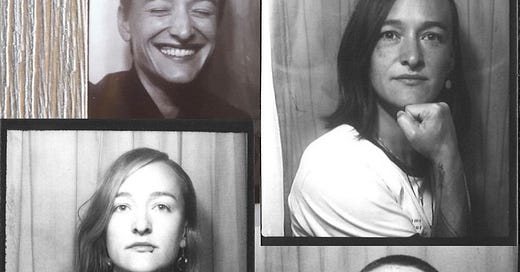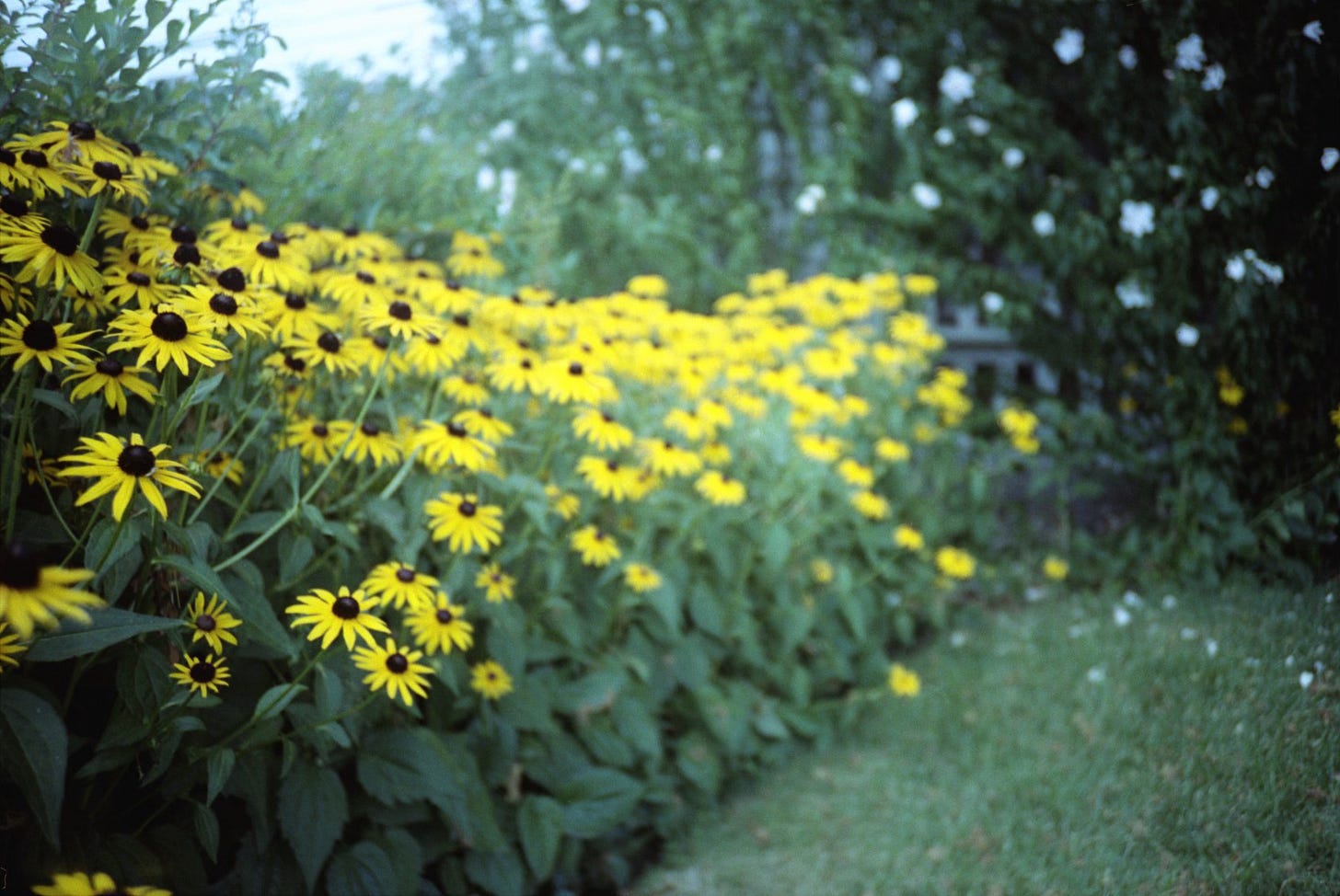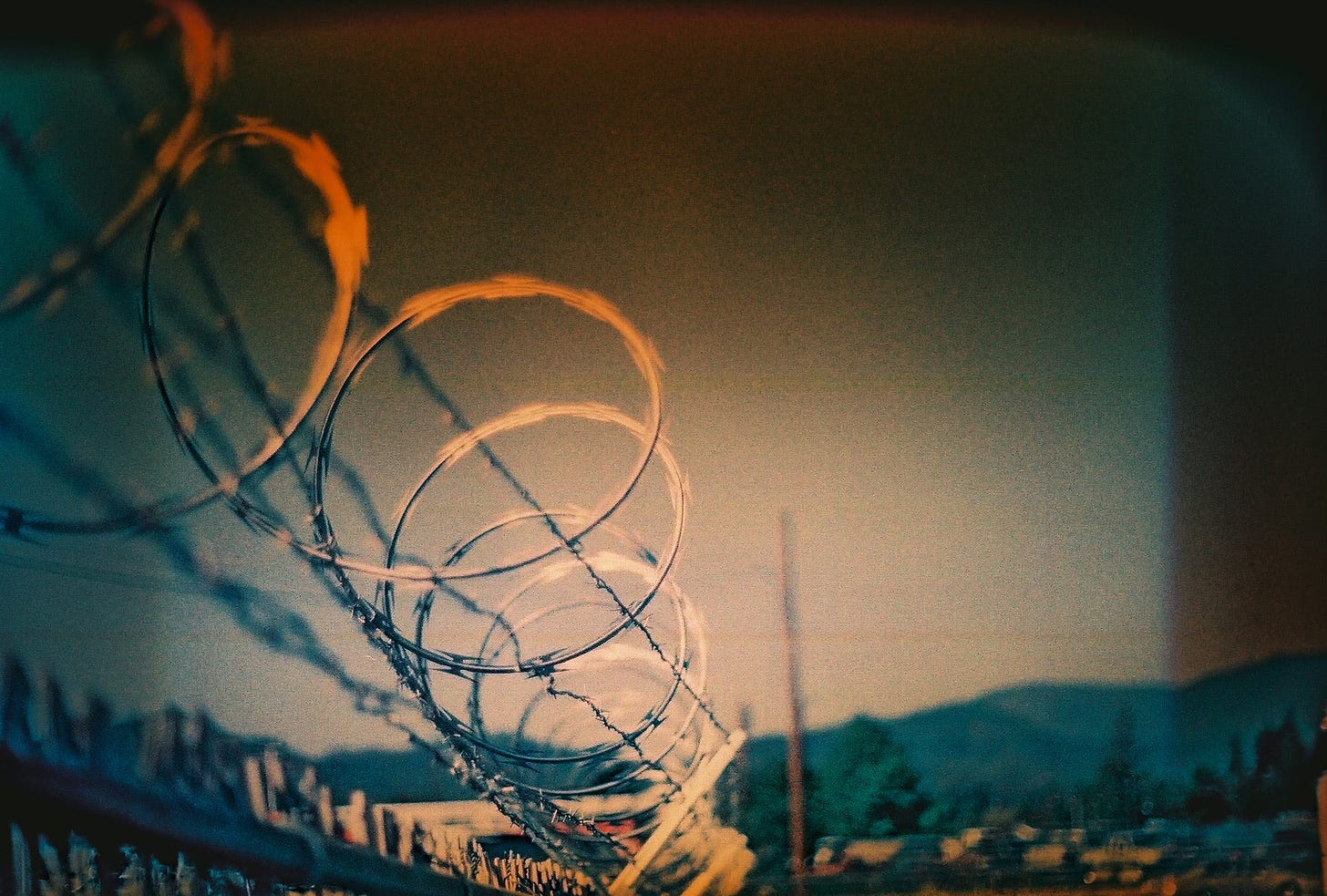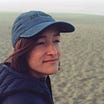Art Meets Autism/Neurodiversity: Interview with Writer Sarah Teresa Cook
"For certain neurodivergent folks who struggle with a diffuse or fragile sense of self, writing can be a profound tool for regulation, orientation, and expression."
Today I am honored to bring you a new artist interview. Meet
of who shares by way of introduction:I’m a lifelong writer—and when I say lifelong, I mean I somehow started writing when I was only three. Writing has accompanied me for most of my time on this strange planet, which means it tends to feel both second nature and very, very safe.
Beyond that, I’m also a teacher and facilitator, creative mentor, late-diagnosed autistic human, game show enthusiast, bug advocate, double Taurus, film photographer, and a lover of scary movies.
What would you like to share with us about your own experience of mental health - symptoms, diagnosis, how you relate to the concept of mental health etc …
I grew up in a household where OCD, depression, and other signs of unwellness were present—entangled with emotional abuse and neglect. Sometime in high school, I became convinced that I must have OCD too, and for the next three decades, I interpreted my inner world through that lens. I saw myself as compulsive, broken, “crazy,” stuck in my head—and ultimately as a bad person, like I didn't know how to be good at being human. I carried around this story that I was secretly a monster, and that every day was just an effort to keep anyone from finding out. The depth of that self-doubt can't be overstated.
A little over a year ago, I discovered that I’m actually autistic. Like many AFAB folks receiving a late diagnosis, it was utterly life-changing. Suddenly, everything made sense: the repetitive behaviors, the obsessive thinking, the emotional intensity, the social challenges, the sensory sensitivities, and how overwhelming it feels to be seen.
Life isn’t magically “fixed” now, and getting a late-in-life diagnosis—while deeply liberating—comes with its own rough terrain, including the hard work of unmasking, of grieving all those misdiagnosed years, and of learning how to better identify and honor my needs. But something essential has shifted. For the first time, I’m starting to see myself with more clarity and compassion. The relentless judgment is slowly giving way to more neutral, even tender, observations. It's no longer, “What is wrong with me?” but rather, “This is hard for me. What do I need here?”
Thank you so much for sharing all of that. I am struck by the way in which many of us find a definition for what we’re experiencing and shape our world through that lens only to realize later that it wasn’t the right (or complete, or only) truth of our experience.
Now that there’s increased understanding about AFAB individuals’ experiences of ASD / neurodiversity, we have a much different lens. And I appreciate your honesty about how that has been critically helpful but also comes with its own challenges.
Regardless of the lens, I wish for all of us that we could experiencing that shift you describe to “This is hard for me. What do I need here?” So very powerful.
What can you share about your history as an artist? What type of art do you create? When and it what ways did art become important to you? What does being creative mean to you?
Because writing has always been a foundational part of my life, I’ve had the unusual privilege of not experiencing “blocks” in the same way some others do. That’s not to say creativity is easy or stress-free, but I can almost always show up to the page and begin in some form. The act of getting started feels familiar, even safe—often safer than real-life interactions, if I’m being honest.
What’s been especially striking, in light of my autism diagnosis, is re-assessing the intensity of my relationship with writing through that lens. I’ve realized it’s not just something I love or do—it’s my lifelong special interest. It’s the thing I could talk about forever, with anyone; I can’t make small talk at parties, but I’m a deeply capable mentor and creative peer who can talk to a stranger about their writing or art-making extensively. I light up in conversations about the emotional landscape of creativity. My other long-standing special interest—mental health and trauma-informed practices—plays a big role here, too, and makes me especially attuned in how I support others.
I also think writing is a kind of stim for me. It’s an activity that helps me locate myself—emotionally, physically, existentially. I’ve always felt like I can see myself more clearly on the page than I can in real life. For a long time, I interpreted that as a flaw, a kind of brokenness. But now I understand that for certain neurodivergent folks who struggle with a diffuse or fragile sense of self, writing can be a profound tool for regulation, orientation, and expression. The page isn’t where I hide. It’s where I come out.
What a beautiful reframe. Again, I find myself wishing for all people the experience of “here’s what is true for me, challenging for me, and beautiful for me” without the layers of stigma and feelings of “brokenness”and “crazy”. I love that you’re getting there … and am sad that we even have to go through so much to get there.
How would you say your experiences of mental health have affected/impacted/altered the content of your art?
I think my writing is saturated with mental health--with questions about personhood and healing, with intense introspection, and with a deep desire to look directly at trauma and its aftermath. Quite a few people have described me as a “brave” writer, and while I really love that word, I have to admit I don’t actually feel brave when I’m writing. I’m not drumming up courage or pushing through fear to say what I say. It just feels natural, even necessary, to name these things out loud on the page. I genuinely can’t imagine being less introspective or less vulnerable in my work.
Besides, all my bravery gets used up going to the grocery store, showing up at social events, or navigating intimacy with other humans--let’s be real :)
Truth!
How does your mental health experience intersect with productivity and with art as a business/income?
As an autistic human, becoming self-employed, and building a life where my special interest gets to take up the bulk of my time, has honestly been a life-saver.
If this stirs up any feelings of comparison as you read it, please know: I've only managed to do this with *a lot* of help. I’m in a deeply committed long-term partnership with someone who has a stable job and has been willing to be a financial safety net, especially while I got my sea legs during that first very uncertain year. We live in a small town, we don’t live extravagantly, and I had a small cushion of savings going in. My partner has good insurance, and I’m on his plan. We don’t have kids. So all of these variables made it possible for me to take the leap—leaving my traditional job in social work to try this radically different way of being.
For a long time, I thought I’d never want to be in a position where I was responsible for everything. But it turns out...that’s literally and exactly what I want. I like having my own systems. I struggle with arbitrary rules and unclear hierarchies. I have emotional and sensory needs that make traditional workplaces difficult, and working from home allows me to accommodate them. It’s not uncommon for autistic folks to seek self-employment for these kinds of reasons, and I’m so grateful I was able to figure that out and make this change.
(I'm still not entirely sure how I pulled it off, by the way. It was COVID, I was burnt out, my organization had just unionized…in hindsight, I may have been in a bit of a fugue state.)
I appreciate the acknowledgment of the privilege/opportunities as well as choices you’ve made that have made this possible for you. I could go on forever about the need for systemic/structural change and broad social support so that having a healthy work experience in this country doesn’t require so much sacrifice from self and others.
Although I do not experience autism, I do identify as neurodiverse related to my own own mental health experiences, and I resonate so much with what you’ve said about self-employment. I’ve been self-employed for 20 years and have gone through a whole process of shame and feeling less than when trying to explain that I literally cannot go to a job. It’s not that I can’t work - I work a lot and I work well - but I can’t go sit in an office with all the people doing a job that I mostly don’t understand the purpose of doing it.
How would you say mental health symptoms impacted your self-perception / identity as an artist?
Oof, this question feels so spot-on that I almost don’t know how to answer it. The page has always been the place where I begin to grasp the nuances of my mental health—how my brain works, how it feels to be me. So when I think about “impact,” it almost doesn’t feel like the right framework. It’s like asking, “How has my body impacted my body?”
What I’m trying to say is: my relationship to mental health, my sense of personhood, and the way I’m wired all feel inseparable from how I experience creativity—both in process and in content. It’s one interwoven thread. Do other people feel this way too? I’d really love to know.
Reader, do you feel this way? Leave a comment! Let’s connect.
Writing has obviously been a wonderful thing in your life. What are the biggest benefits?
OH MY GOODNESS. So, so much therapeutic benefit:
Slowing down.
Thinking through hard, complex, messy things.
Sitting with uncertainty—just practicing being there, in the uncertain spaces.
Alchemizing my feelings.
Better recognizing and understanding my feelings.
Expressing myself, and then (most importantly) hearing my self-expressions.
Art and writing are like little mirrors--they shimmer, distort, reflect, and reveal things I didn’t know I was carrying and desperately needed to see.
For the curious reader, I wonder: Do you see your creativity trying to show you things, too? And what *are* they? Weird? Tender? Surprising? Affirming? What quiet truths has creativity shown you, even or especially when you weren’t looking too hard?
In what ways have you seen art help others?
One of the best parts of being a creative mentor & coach is witnessing firsthand how art and writing helps others. Here’s what I’ve observed:
People learn to trust themselves more—both their preferences and their impulses.
People learn to cultivate their own inspiration and motivation. This is a really empowering shift—feeling in charge of your creativity, not just at the mercy of the muses.
People build healthier relationships with their parts, not just in a colloquial sense but from an IFS (Internal Family Systems) perspective, where they finally begin to understand and honor those parts.
People get on better terms with their history. I’ve worked with clients who struggled to write or share their work due to trauma, and I’ve seen them untangle that while reclaiming their creative voice. In these cases, it’s about letting our difficult pasts inform--but not dictate--what and how we create. This shift in healing is one of the most profound things I’ve witnessed, maybe because when you’re stuck in trauma responses, change doesn’t even feel possible. I don’t say this lightly: if you’re struggling to believe that you can change how you approach your creativity, I want you to know I’ve seen it happen over and over again.
Over time, I’ve also come to believe that creativity doesn’t just heal us individually—it creates positive conditions for something larger. It softens isolation. It invites relationship and collaboration. It becomes a shared language, even when we’re working alone.
I’m constantly amazed by how creativity becomes a meeting place—not just for our private thoughts and feelings, but for connection, curiosity, and care.
Learn more about creative mentorship with Sarah Teresa Cook.












I am just starting to get a grip on how I’m neurodivergent in my 50s. I really appreciate this article. It helped me understand why writing has always been a mental health necessity for me. It’s almost as if I don’t know what I’m thinking or feeling or needing unless I’m writing. And I always have to imagine there’s an audience. That’s the strange part. I’m always writing to God, or a lover, or a friend.
Beautiful. "It’s an activity that helps me locate myself—emotionally, physically, existentially. I’ve always felt like I can see myself more clearly on the page than I can in real life... writing can be a profound tool for regulation, orientation, and expression." Yes!!